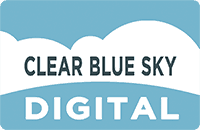Search Engine Optimization: Turning Mystery into Mastery – Part 1
Today, W3PR launches our new RSS/Atom Feed service with a series of articles designed to help you understand and take advantage of Search Engine Optimization.
Over the next days and weeks, I’ll be posting articles that cover every aspect of SEO. So, go ahead and sign up! You can discontinue the feed at any time, but my guess is that you’ll find it helpful and want to know more. We’re starting with the basics and will quickly move into more complicated issues as well as other Internet marketing topics. So, send me your questions and I’ll try to address them as soon as possible.
Search Engine Optimization: Turning Mystery into Mastery – Part 1
Do you know how your customers find your website? After email and instant messaging, using search engines is the second most popular activity among Internet users worldwide. (Source: USC Annenberg School 2004 Digital Future Report September, 2004) Therefore it is critical that your site be listed well in the top search engines. Unfortunately, the search engines don’t “just find” your site. You must optimize and submit it to them. When most people think of Search Engine Optimization (or SEO for short) they think of it as “too technical” at best and “black art” at worst. In fact, optimizing your site to rank well at the search engines is neither. SEO should be thought of as just another marketing tool that you have at your disposal in the larger marketing mix of Internet advertising, direct marketing, yellow pages, newspaper or magazine print ads, radio or television, etc. And though it takes time and effort, Search Engine Optimization is probably easier than you think. Is SEO Worth The Bother?You spent a great deal of time and energy building your website. You thought through the products that would be featured and how they would be presented to attract the customer and stimulate a sale. You considered what the page would look like and took into account your company’s image and brand look and feel. You also considered the knowledge you have of your customers and what they respond to. Similarly, your listings at a search engine should be looked at as an extension of your brand and image to both your current and future customers online. You wouldn’t consider letting a newspaper or the yellow pages write your copy and define your business to their audience without your input. Neither should you do that with your search engines listings! What’s Important To The Search Engines?To start with, you need to understand what the search engines are really designed to do. Understanding this helps you to design your website pages to take full advantage of this great marketing tool. Very simply, Search Engines are designed to do three things: Index text – This means the text that appears in body copy on any page of your site. This is where the search engines prefer to find your keywords as well as the ?theme? (or whole picture) of your site. Follow links – The search engine spiders will follow any html link on a submitted web page. The spider then will index the content (text) on that page as well. Measure popularity – This mostly applies to Google. The search engine follows links from all the sites that reside in its indices. If a site has links to other sites that are about the same topic, then those sites are ascribed a certain amount of “popularity” because they were linked to the first site. All other things being equal, a site with many links to it is ranked higher than a site with few or no links from other sites. Remember that the search engines are in business to deliver the most relevant results to their visitors. Your content and links need to tell the search engine what your site is about. The search engines in turn will deliver qualified visitors, (i.e. those that are searching for what you offer) to your website. Once you understand what the search engines need to list your site well and take advantage of that knowledge, your site will fare much better than the 85% of sites that do nothing. Next up, we’ll talk about the basic process of optimizing a website. Stay tuned and don’t forget to send in your questions for future articles!



